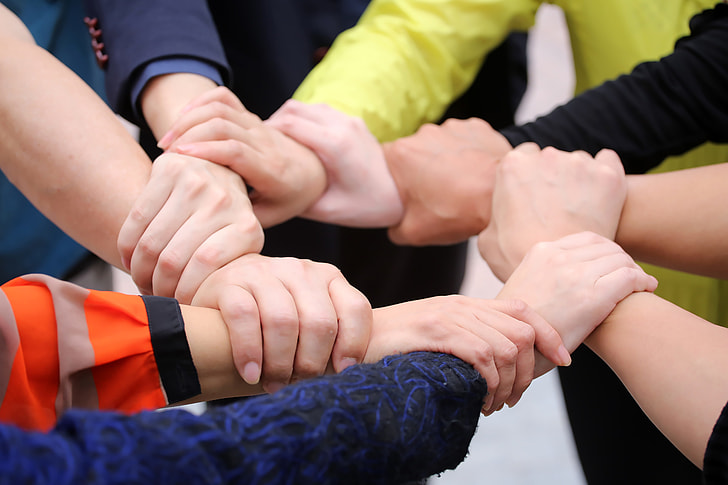
And they devoted themselves to the apostles’ teaching and the fellowship, to the breaking of bread and the prayers… And all who believed were together and had all things in common. And they were selling their possessions and belongings and distributing the proceeds to all, as any had need.
Acts 2:42,44-45
We use the word “fellowship” often and casually. But what does it mean Biblically and what does it look like in practice?
The word is “koinonia” and refers to much more than pot-luck meals, chit chat in the lobby and friendly small groups. Koinonia simply means “sharing,” and is the noun form of the verb “to share.” So it’s not surprising that the early church’s devotion to “fellowship” involved real, significant, sacrificial sharing of their physical resources.
The book of Philippians gives us a helpful window into the meaning and application of koinonia. The apostle Paul was able to fund his own ministry by making tents, but he asked the churches he founded to “pay it forward” by funding his next trips, taking the gospel into unexplored fields. Apparently most of the churches he planted were either not very willing or not very able to invest in his ministry.
“And you Philippians yourselves know that in the beginning of the gospel, when I left Macedonia, no church entered into partnership with me in giving and receiving, except you only.”
Philippians 4:15
That word “partnership” is koinonia. For Paul it had a very concrete meaning: “you sent me money.” In a time when no one else stood with him financially, the believers in Philippi made sacrifices to help him. Is it any wonder, then, that Paul wrote his warmest, most joy-filled letter to this generous church family?
“I thank my God in all my remembrance of you, always in every prayer of mine for you all making my prayer with joy, because of your partnership in the gospel from the first day until now.”
Philippians 1:3-5
Again here koinonia is translated “partnership,” which I think best captures the sense of the term. “Fellowship” for us usually means “warm relationship,” and that is certainly meant in the word koinonia. But the tangible result of warm, loving relationship is practical, tangible care. When you love someone, you help them – you stand with them. You consider yourself a partner with them. You are one family. You are one body.
In these days of conflict and division in society it is all the more important for believers to come together in unity and true koinonia. We are one body. We are one family. The body of Christ is not divided. We must stand together. We must united together as partners on a common mission.
And let’s remember, that mission is not to get any politician elected. The mission is to exalt Jesus Christ and invite as many as possible to be forgiven and reconciled with God through Him. The mission is to make disciples and build up the church, sending the Gospel to the nations. Peter gives clear teaching on this matter:
“Be subject for the Lord’s sake to every human institution, whether it be to the emperor as supreme, or to governors as sent by him to punish those who do evil and to praise those who do good. For this is the will of God, that by doing good you should put to silence the ignorance of foolish people. Live as people who are free, not using your freedom as a cover-up for evil, but living as servants of God. Honor everyone. Love the brotherhood. Fear God. Honor the emperor.
1 Peter 2:13-17
Let’s stand together as those who do good and leave the foolish, ignorant talk to others. Let’s come together with one voice to support whomever wins the election as our president. Let’s be respectful toward all in authority and not give in to fear or to the divisive fighting so common today on social media. As Bill said Sunday, “let the Bible shape your politics and don’t let your politics shape your Bible.”
